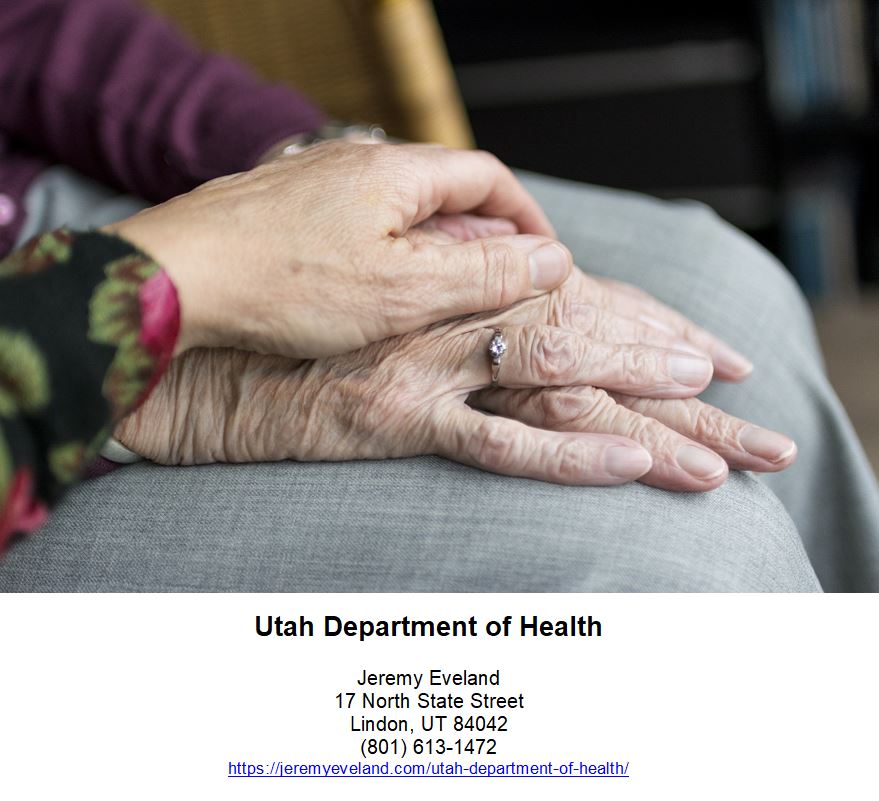-
Attorney at Law
- Introduction
- Understanding the Legal Rights of Nursing Home Residents
- Exploring the Different Types of Nursing Home Abuse and Neglect
- The Impact of Nursing Home Regulations on Quality of Care
- The Role of Nursing Home Attorneys in Protecting Residents’ Rights
- The Benefits of Nursing Home Litigation for Residents and Families
- Q&A
“Protecting Your Loved Ones with Nursing Home Law: Compassionate Advocacy for Quality Care.”
Introduction
Nursing home law is a complex and ever-evolving area of law that governs the rights and responsibilities of nursing home residents, their families, and the nursing home facility. It is important for those involved in the nursing home industry to understand the legal requirements and regulations that govern the industry. Nursing home law covers a wide range of topics, including resident rights, facility licensing, and staff qualifications. It also covers issues such as abuse and neglect, medical malpractice, and wrongful death. This introduction will provide an overview of nursing home law and its implications for those involved in the industry.
Understanding the Legal Rights of Nursing Home Residents
Nursing home residents have certain legal rights that are protected by federal and state laws. It is important for nursing home residents and their families to understand these rights in order to ensure that they are being treated fairly and with respect.
This is a part of the topic of Estate Planning.
Residents of nursing homes have the right to be treated with dignity and respect. This includes the right to privacy, freedom from abuse and neglect, and the right to make decisions about their own care. Nursing home staff must respect the resident’s right to privacy and must not disclose any information about the resident without their consent.
Residents also have the right to participate in their own care. This includes the right to be involved in decisions about their medical care, activities, and other aspects of their daily life. Nursing home staff must provide residents with information about their care and must respect their decisions.
Residents have the right to be free from abuse and neglect. Nursing home staff must provide a safe and secure environment for residents and must not use physical or verbal abuse. Residents also have the right to be free from any form of discrimination based on race, religion, gender, or sexual orientation.
Residents have the right to access their medical records and to be informed of any changes in their care. Nursing home staff must provide residents with information about their medical condition and any changes in their care.
Residents also have the right to voice their concerns and complaints. Nursing home staff must provide a safe and secure environment for residents to express their concerns and must take appropriate action to address any issues.
Finally, residents have the right to access their financial records and to be informed of any changes in their financial situation. Nursing home staff must provide residents with information about their financial situation and must respect their decisions regarding their finances.
It is important for nursing home residents and their families to understand their legal rights in order to ensure that they are being treated fairly and with respect. If you have any questions or concerns about your rights as a nursing home resident, it is important to speak to a qualified attorney who can provide you with legal advice.
Exploring the Different Types of Nursing Home Abuse and Neglect
Nursing home abuse and neglect is a serious issue that affects thousands of elderly individuals each year. It is important to understand the different types of abuse and neglect that can occur in nursing homes in order to protect vulnerable seniors from harm.
Physical Abuse
Physical abuse is the intentional use of physical force that results in bodily injury, pain, or impairment. Examples of physical abuse in nursing homes include hitting, slapping, pushing, kicking, and restraining. Physical abuse can also include the inappropriate use of physical restraints, such as tying a resident to a bed or chair.
Emotional Abuse
Emotional abuse is any behavior that causes emotional distress or trauma. Examples of emotional abuse in nursing homes include verbal abuse, humiliation, intimidation, and isolation. Emotional abuse can also include the withholding of necessary care or services.
Sexual Abuse
Sexual abuse is any form of non-consensual sexual contact. Examples of sexual abuse in nursing homes include unwanted touching, sexual assault, and rape.
Financial Abuse
Financial abuse is the illegal or improper use of a person’s funds or property. Examples of financial abuse in nursing homes include stealing money or possessions, forging signatures, and misusing power of attorney.
Neglect
Neglect is the failure to provide necessary care or services. Examples of neglect in nursing homes include failing to provide adequate nutrition, failing to provide necessary medical care, and failing to provide a safe and clean living environment.
It is important to be aware of the different types of abuse and neglect that can occur in nursing homes in order to protect vulnerable seniors from harm. If you suspect that a loved one is being abused or neglected in a nursing home, it is important to report it to the proper authorities.
The Impact of Nursing Home Regulations on Quality of Care
Nursing home regulations are an important factor in ensuring quality of care for residents. The regulations are designed to protect the rights of residents and ensure that they receive the highest quality of care. This article will discuss the impact of nursing home regulations on quality of care and how they can be used to improve the quality of care in nursing homes.
Nursing home regulations are designed to ensure that residents receive the highest quality of care. These regulations are set by the federal government and are enforced by state and local governments. The regulations cover a wide range of topics, including staffing levels, quality of care, and safety standards. The regulations also require nursing homes to provide residents with access to medical care, social services, and other services that are necessary for their health and well-being.
The impact of nursing home regulations on quality of care is significant. The regulations ensure that nursing homes are providing the highest quality of care to their residents. They also ensure that residents are receiving the necessary services and support that they need. The regulations also help to ensure that nursing homes are providing a safe and secure environment for their residents.
Nursing home regulations can also be used to improve the quality of care in nursing homes. For example, the regulations can be used to ensure that nursing homes are providing adequate staffing levels and that staff members are properly trained and qualified to provide the highest quality of care. The regulations can also be used to ensure that nursing homes are providing the necessary services and support that residents need.
In conclusion, nursing home regulations are an important factor in ensuring quality of care for residents. The regulations are designed to protect the rights of residents and ensure that they receive the highest quality of care. The regulations also help to ensure that nursing homes are providing a safe and secure environment for their residents. Finally, the regulations can be used to improve the quality of care in nursing homes by ensuring that nursing homes are providing adequate staffing levels and that staff members are properly trained and qualified to provide the highest quality of care.
The Role of Nursing Home Attorneys in Protecting Residents’ Rights
Nursing home attorneys play an important role in protecting the rights of nursing home residents. Nursing home attorneys are responsible for ensuring that nursing home residents receive the care and services they are entitled to under the law. They also work to ensure that nursing home residents are treated with respect and dignity.
Nursing home attorneys are knowledgeable about the laws and regulations that govern nursing homes. They are familiar with the rights of nursing home residents and the responsibilities of nursing home staff. They are also knowledgeable about the various types of abuse and neglect that can occur in nursing homes.
Nursing home attorneys can help nursing home residents and their families understand their rights and the laws that protect them. They can provide advice on how to file a complaint or take legal action if a nursing home is not providing the care and services that are required by law. They can also provide assistance in filing a lawsuit against a nursing home if necessary.
Nursing home attorneys can also help nursing home residents and their families understand the various types of abuse and neglect that can occur in nursing homes. They can provide advice on how to recognize and report abuse and neglect. They can also provide assistance in filing a lawsuit against a nursing home if necessary.
Nursing home attorneys can also provide assistance in negotiating with nursing homes to ensure that the rights of nursing home residents are respected. They can help to ensure that nursing home residents receive the care and services they are entitled to under the law. They can also help to ensure that nursing home residents are treated with respect and dignity.
Nursing home attorneys are an important part of the nursing home system. They are responsible for ensuring that nursing home residents receive the care and services they are entitled to under the law. They also work to ensure that nursing home residents are treated with respect and dignity. Nursing home attorneys play an important role in protecting the rights of nursing home residents.
The Benefits of Nursing Home Litigation for Residents and Families
Nursing home litigation is a legal process that can be used to protect the rights of nursing home residents and their families. It is a powerful tool that can be used to hold nursing homes accountable for providing inadequate care and for failing to meet the standards of care that are required by law.
Nursing home litigation can provide a number of benefits for residents and their families. First, it can help to ensure that residents receive the care and services that they need and deserve. Nursing home litigation can be used to hold nursing homes accountable for providing inadequate care, such as failing to provide adequate nutrition, failing to provide adequate medical care, or failing to provide a safe and secure environment.
Second, nursing home litigation can help to ensure that residents are treated with respect and dignity. Nursing home litigation can be used to hold nursing homes accountable for failing to provide a safe and secure environment, failing to provide adequate staffing, or failing to provide adequate supervision.
Third, nursing home litigation can help to ensure that residents are not subjected to abuse or neglect. Nursing home litigation can be used to hold nursing homes accountable for failing to provide adequate supervision, failing to investigate allegations of abuse or neglect, or failing to take appropriate action when abuse or neglect is reported.
Finally, nursing home litigation can help to ensure that residents and their families receive the compensation they deserve for any harm that has been caused by the nursing home. Nursing home litigation can be used to seek damages for medical expenses, pain and suffering, and other losses that have been suffered as a result of the nursing home’s negligence.
Nursing home litigation is an important tool that can be used to protect the rights of nursing home residents and their families. It can help to ensure that residents receive the care and services that they need and deserve, that they are treated with respect and dignity, and that they are not subjected to abuse or neglect. It can also help to ensure that residents and their families receive the compensation they deserve for any harm that has been caused by the nursing home.
Q&A
1. What is the purpose of Nursing Home Law?
The purpose of Nursing Home Law is to protect the rights of nursing home residents and ensure that they receive the highest quality of care. It also sets standards for nursing home operations and establishes regulations for the care of residents.
2. What rights do nursing home residents have?
Nursing home residents have the right to be treated with respect and dignity, to receive quality care, to be free from abuse and neglect, to participate in their own care, to have access to their medical records, and to have their complaints addressed.
3. What is the role of the state in regulating nursing homes?
The state is responsible for setting and enforcing standards for nursing home operations. The state also inspects nursing homes to ensure that they are meeting the standards and provides oversight of nursing home operations.
4. What is the role of the federal government in regulating nursing homes?
The federal government sets minimum standards for nursing home operations and provides funding for nursing home inspections and enforcement. The federal government also provides oversight of nursing home operations.
5. What is the role of the nursing home staff in providing quality care?
The nursing home staff is responsible for providing quality care to residents. This includes providing medical care, assisting with activities of daily living, and providing emotional support. The staff must also ensure that the nursing home is meeting the standards set by the state and federal government.
Nursing Home Law Consultation
When you need help with Nursing Home Law call Jeremy D. Eveland, MBA, JD (801) 613-1472 for a consultation.
Jeremy Eveland
17 North State Street
Lindon UT 84042
(801) 613-1472
Related Posts
Estate Planning Lawyer Salt Lake City Utah
Business Succession Lawyer Bountiful Utah


